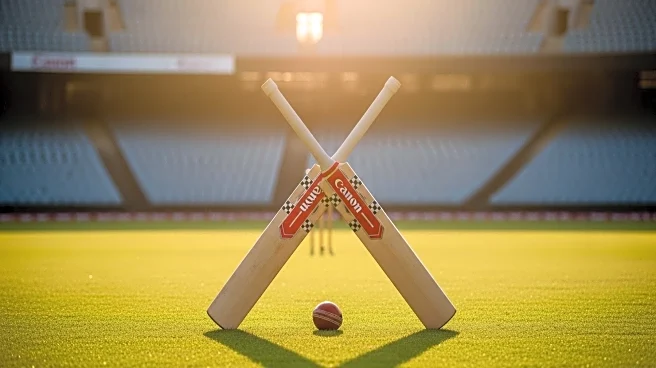What is the story about?
What's Happening?
The Pakistan cricket team is set to face India in the Asia Cup final at the Dubai International Cricket Stadium. India has been dominant throughout the tournament, remaining unbeaten and having already defeated Pakistan twice. Pakistan's journey has been less convincing, with losses to India but victories over Sri Lanka and Bangladesh boosting their confidence. The final is anticipated to be a high-stakes match, with particular focus on the duel between India's Abhishek Sharma and Pakistan's Shaheen Shah Afridi. Off-field tensions have also been noted, with Pakistan's captain questioning India's refusal to participate in handshakes and defending his team's aggressive celebrations.
Why It's Important?
The Asia Cup final between India and Pakistan is significant not only for its sporting implications but also for its geopolitical context. Cricket matches between these two nations often carry additional weight due to their historical and political tensions. A victory for Pakistan could serve as a morale booster and a chance for redemption after previous losses to India. Conversely, India's continued dominance could reinforce their position as a leading cricketing nation. The match also highlights the intense rivalry and competitive spirit that characterizes Indo-Pak cricket encounters, drawing significant attention from fans and media worldwide.
What's Next?
Following the Asia Cup final, both teams will likely reassess their strategies and performances. For Pakistan, a win could lead to increased confidence and momentum in future tournaments, while a loss might prompt a reevaluation of team dynamics and strategies. India, if victorious, will aim to maintain their winning streak and further solidify their standing in international cricket. The outcome of the match could also influence future cricketing relations and engagements between the two countries, potentially impacting bilateral series and tournaments.
Beyond the Headlines
The Asia Cup final between India and Pakistan underscores the broader cultural and diplomatic dimensions of sports. Cricket serves as a platform for soft diplomacy, where sportsmanship can transcend political barriers. The match could foster dialogue and engagement between the two nations, albeit indirectly, through shared sporting interests. Additionally, the aggressive celebrations and refusal to shake hands highlight the cultural differences and competitive nature inherent in Indo-Pak cricket matches, reflecting deeper societal and nationalistic sentiments.















